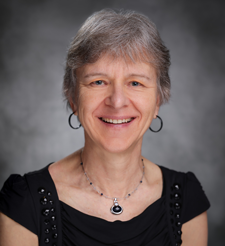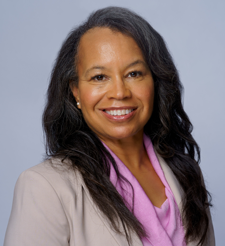Dr. Jayes and Dr. Taylor have been putting patients first since the conception of this project, developing an investigational treatment for uterine fibroids.


What are uterine fibroids and why is a new therapy for uterine fibroids needed?
- Uterine fibroids are common, non-cancerous, reproductive-age tumors.
- Most women will develop uterine fibroids by the age of 50, more so in Black women.
- Many experience symptoms from uterine fibroids. The symptoms can be severely debilitating, due to pain, heavy bleeding, painful sex, and abnormal menstrual cycles This can negatively impact their daily lives and lead them to seek out treatment.
- Currently available interventions are either expensive, difficult to access, have significant systemic side effects, do not reduce symptoms, or result in sterilization, such as hysterectomy.
- There is also substantial inequity in treatment practices for uterine fibroids; Compared to White women, Black women have a 3-fold higher hysterectomy rate. Therefore, there is a substantial need for new equitable, effective treatments.
Uterine fibroids need to be treated seriously
Our team is passionate about developing a new investigational treatment designed to be cost-effective and easily administered without unwanted side effects or invasive surgery. This investigational therapy will present a minimally invasive, fertility-preserving treatment option for women suffering from uterine fibroids.
Our proposed method uses ultrasound-guided injection directly into the fibroid with a proprietary formulation.
The investigational treatment, currently under development, combines the biology of the collagenase enzyme with a unique, injectable, drug carrier solution, Liquogel™, to enhance uterine fibroid breakdown.
Read the Translational Science Benefits Model Case Study:
New Option for Treatment of Uterine Fibroids: Engineering Smart Therapeutics
About our team
Dr. Friederike Jayes and Dr. Darlene Taylor, from Duke and NCCU respectively, started collaborating in 2010 to solve an unmet need in women suffering with uterine fibroids.
Investigational therapy
Testing is ongoing. This therapy is not available for clinical use. But exciting progress is being made! Our team tested the investigational collagenase therapy combined with the Liquogel™ drug delivery system and were able to successfully degrade fibroids.
History
While we have been collaborating on possible treatments for uterine fibroids using our novel investigational therapy since 2010, the initial idea came from the 2004 discovery that uterine fibroids are composed of altered collagen.

Female-led team passionate about transforming uterine fibroid care

Friederike L. Jayes, PhD
I joined Duke in 2010 as an assistant professor in the department of pathology and as an assistant professor in the department of obstetrics and gynecology.
My current research focuses on uterine fibroids. These non-cancerous, often bulky and firm tumors have a major impact on women’s health, on quality of life, and on health care cost.
I am also interested in studying the surrounding tumor environment. Specifically, fibroid tumors are composed mainly of collagen, a stiff structural protein.

Darlene Taylor, PhD
I joined North Carolina Central University as an assistant professor in chemistry in 2005. I am also an adjunct assistant professor in the department of obstetrics and gynecology at Duke University.
My work focuses on the effectiveness of various materials for potential applications in technologies that range from solar panel cells to drug delivery vehicles.
During this collaboration, I have been developing a new form of treatment for uterine fibroids based on a novel hydrogel for drug delivery.
We wish to acknowledge and thank our Duke PMCoP DEVELPMNT interns, Amelia Schirmer, Shonagh Russell, and Emily Neville for development of the website content.